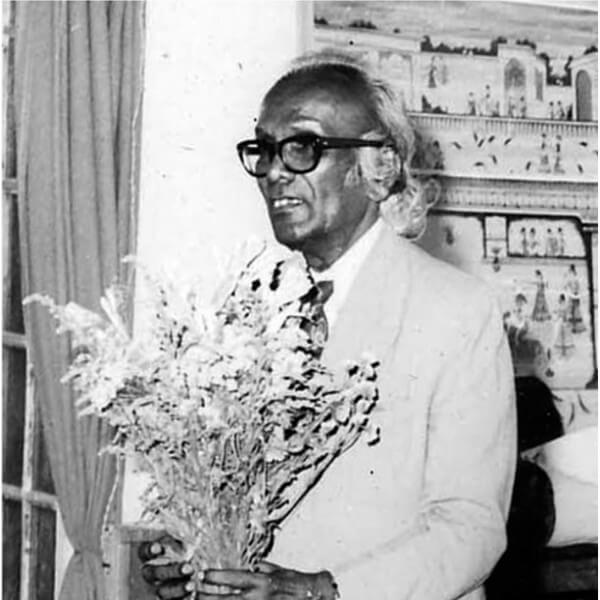K H ARA
ABOUT
Work was rooted in the delight of ingenuity, focusing on the female nude, still life and human figure studies.
Painter | India
Born in 1914
Died in 1985

Born in 1913 at Bolarum (near Hyderabad), Andhra Pradesh, Krishnaji Howlaji Ara did not receive any formal schooling or education in the field of fine arts. The son of a chauffeur, Ara spent the initial years of his life in his hometown, and only moved to Mumbai at the age of seven. Once there, he first made a living cleaning cars, and later joined the Salt Satyagraha movement that was led by Mahatma Gandhi during India's Independence struggle. He later worked as a car cleaner for a Japanese firm. He was only encouraged to paint as a profession later by an art critic from the Times of India, Rudy von Leyden, who saw the work he used to do in his spare time. A founder member of the Progressive Artists' Group in Mumbai, K H Ara, in the critic Nissim Ezekiel's words, was the first contemporary Indian painter to meticulously use the female nude as a subject, not straying from the limits of naturalism, unlike colleagues like F N Souza. His work was rooted in the delight of ingenuity, focusing on the female nude, still life and human figure studies. Ara was also part of the managing committee of the Bombay Art Society in its fledgling years, and served on the selection and judging committee of the Lalit Kala Academy. He was also associated with the Artist's Center at the heart of Mumbai's art district, where he spent the bulk of his time in his later years. Krishnaji Howlaji Ara did not receive any formal schooling or education in the field of fine arts. Ara held his first solo show in 1942, at the Chetana Restaurant in Bombay. Since then he has had several other one man and group shows, including many with the Progressive Artists’ Group from 1948 to 1955 in Mumbai, Ahmedabad, Baroda and Calcutta. He had three more solo exhibitions in Mumbai in 1952, 1954 and 1960, and took part in the inaugural show of the Pundole Art Gallery in 1963. In the same year, he exhibited his Black Nude series in Mumbai. In 1955, Ara held shows of his work in Romania, Hungary and Bulgaria. His paintings have also been shown in galleries in West Germany, Russia and Japan. AWARDS: Amongst Ara's many honours is the prestigious Governor's Award for painting in 1944, and the Gold Medal from the Bombay Art Society for his canvas Two Jugs in 1952.

